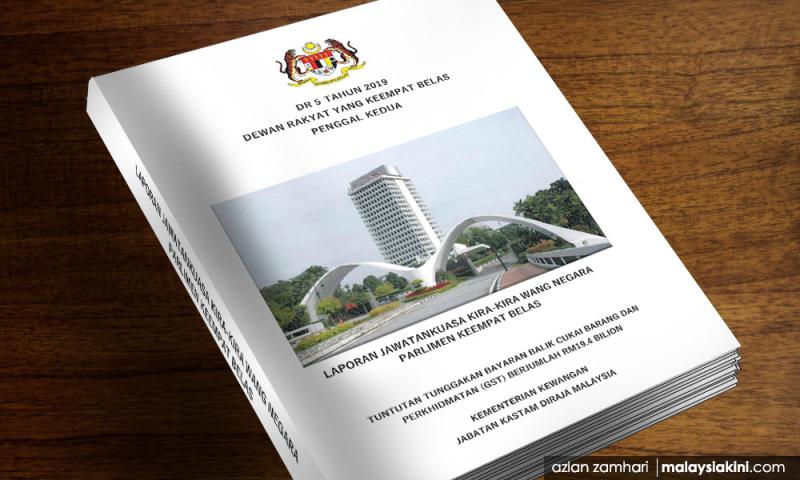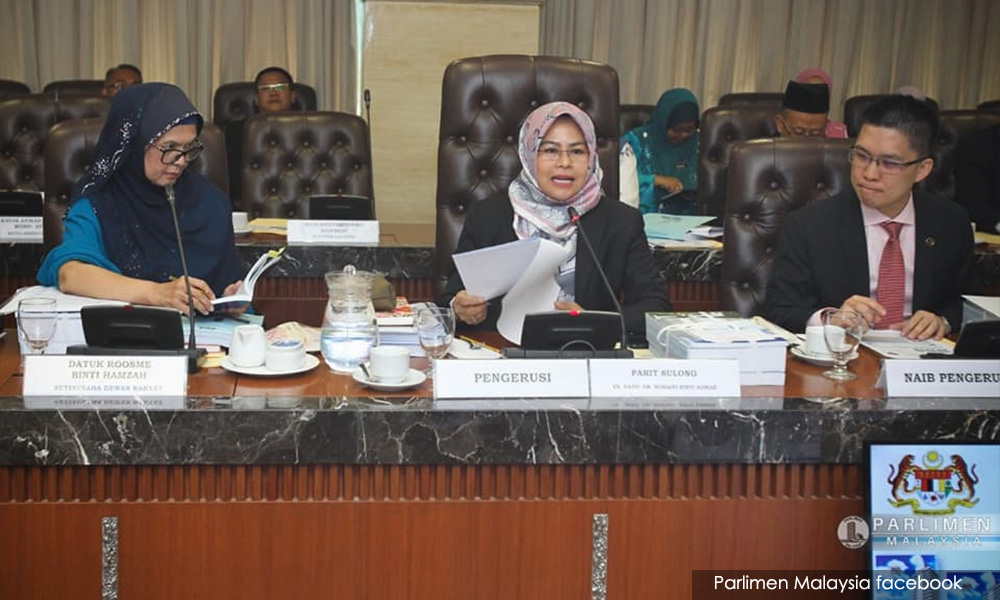A primer on the 'not missing' GST refunds
KINIGUIDE | The Public Accounts Committee's release of its long-awaited report on delayed GST refunds has elicited cries of vindication from both Pakatan Harapan and BN, though for completely different reasons.
Harapan lawmakers are arguing that the PAC's conclusion was that the previous administration had breached the law by channelling GST revenue to the wrong account.
To BN lawmakers, what was important was the committee finding that RM19.4 billion meant for GST refunds was “not missing.”
As the full report is 484 pages long, including hearing transcripts, this instalment of KiniGuide attempts to serve as a primer for readers to dive into the highly technical document and formulate their own conclusions.
What is the PAC?
The PAC is a bipartisan committee of MPs with a mandate to represent Malaysians in scrutinising the federal government's money matters.
They conduct closed-door hearings, formulate recommendations, and present it to the Dewan Rakyat. Their decisions must be unanimous.
What was their mandate in relation to GST refunds?
In summary, the PAC's terms of reference were:
- Determine the GST collection and refund procedure;
- Determine the quantum of GST revenue received; and
- Seek an explanation on delayed GST refunds amounting to RM19.4 billion.
Who testified before the PAC?
- Customs Department director-general T Subromaniam (now former)
- Former Treasury chief secretary Irwan Serigar Abdullah
- Former Finance Minister II Ahmad Husni Mohamad Hanadzlah
- Former Finance Minister II Johari Abdul Ghani
- Treasury secretary-general Ahmad Badri Mohd Zahid (Irwan's deputy at the time)
- Former Finance Minister Najib Abdul Razak
- Finance Minister Lim Guan Eng
- Accountant General Saat Esa
What were the PAC's findings on the refund procedure?
According to the GST Act 2014 and the Trust Deed on GST refunds (dated March 13, 2015), all GST revenue must be credited in the GST trust fund.
Any surplus was to be transferred into to government's consolidated revenue account.
The PAC established that this procedure was not followed. This was confirmed by many those testified before the PAC, including the National Audit Department.
Instead, GST funds went into the consolidated revenue account before being transferred to the GST trust fund either monthly or quarterly.
Why are the refunds important?
Although GST was meant as a tax on consumption, GST is collected at every stage of the supply chain. GST collected from manufacturers, wholesalers and retailers are legally required to be refunded within 14 days of a claim.
While there are some provisions that allow for delays, the Customs Department said some claims were delayed up to two years. The accumulated effects of delayed refunds could potentially cause problems for businesses.
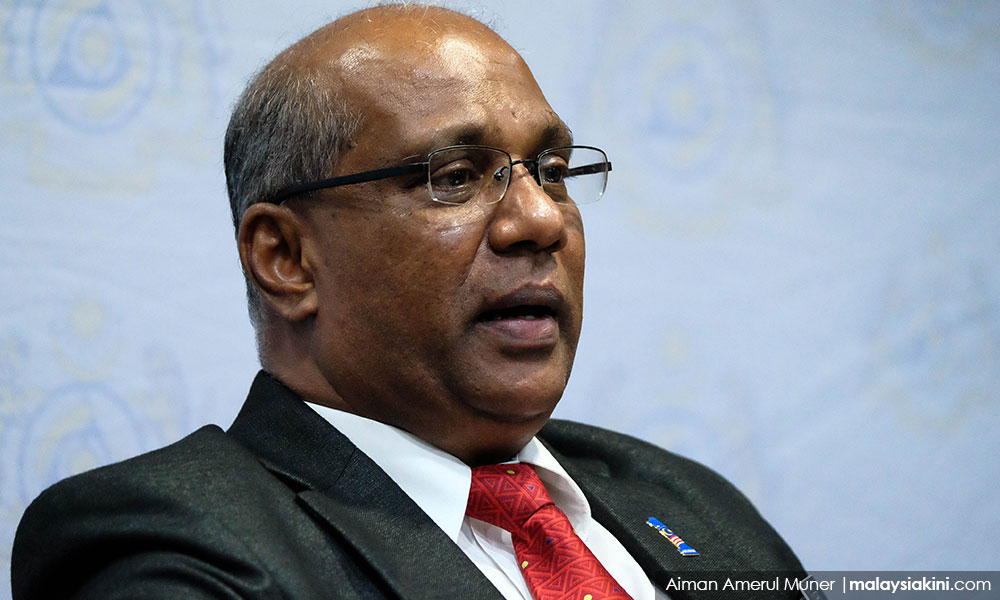
As Subromaniam (photo) told the PAC in March: "Businesses have been choking. Some of them did not get their refund for two years and this is very, very serious."
Was there a delay in GST refunds?
Yes, and it was intentional. The government simply could not afford to pay refunds at the time.
“I admit there were delays. We didn't want to process (the claims) quickly because if we did so and approved it, the taxpayers can see it in the (RMS) system. Our (system) is very transparent. They (taxpayers) can see it and say 'Ha! Customs have approved. Where's my money?'. In reality, there is no money,” Subromaniam testified.
Irwan told the PAC in September that: "If the revenue is not enough to cover expenditure, then we will have to postpone certain payments because our key thing is to pay the salary, the running of the machinery of the government.”
Why wasn't there money for refunds?
GST revenue was collected in the consolidated revenue account and spent.
The GST trust fund, where the refunds were to come from, had a balance of RM152 million as of May 31, 2018.
The amount of money that ended up in the GST trust fund, in practice, was decided by the Finance Ministry's cashflow committee.
They had decided that 35 percent of GST revenue was to be kept in the fund, but that figure could not be maintained throughout the year.
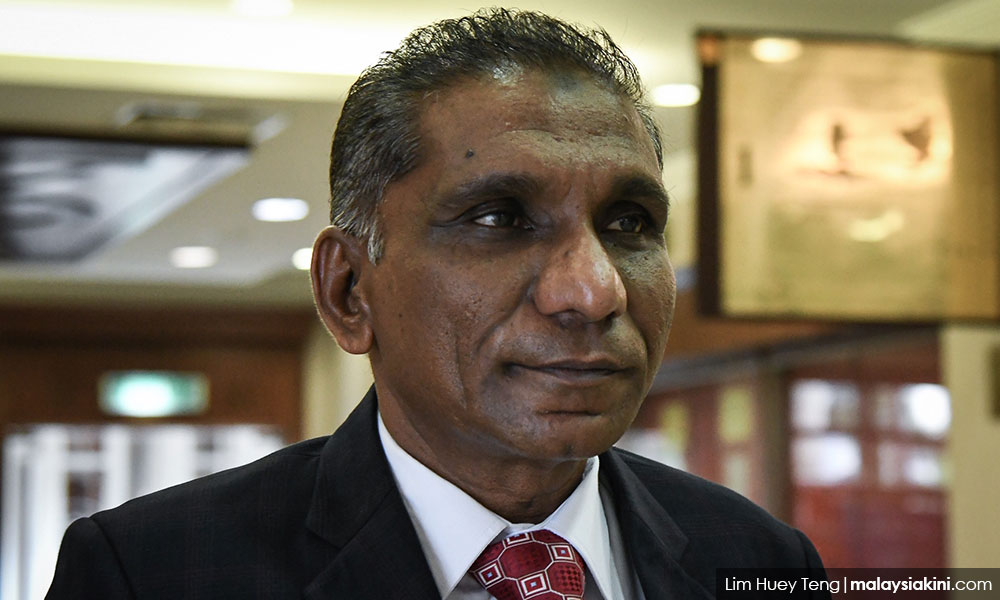
According to Irwan (photo), “If we pay all the claims, then we are going to have operating deficit. When we have an operating deficit, not only a fiscal deficit, then we are going to get the (credit) rating going down, the country will be in big trouble.”
Badri, Irwan's deputy at the material time, said in October: “We can't afford to pay all. If not, it would widen the budget deficit. Not only that, at the end of the day, we would affect our (credit) rating. Our pledge (BN's pledge) was to maintain a budget deficit of 2.8 percent (of GDP) at that point in time.”
Saat told the PAC in May that “We had enough (to pay refunds) but not all outstanding balances… we had GST revenue in 2018… RM20 billion. At that point in time, as we were informed, there was an outstanding (balance) of RM19.4 billion. We could move everything, but the deficit target would burst”.
Did the delayed payment amount to RM19.47 billion?
That depends on who you ask. Note that GST is collected by the Customs Department, not the Inland Revenue Board.
Subromaniam said the department's goal was to refund within 14 days and audit later where necessary, as it had a six-year time frame to conduct audits.
“So I am still defending my press release (on Aug 10, 2018). I told the honourable finance minister, when he questioned me, I told the minister ‘Yes sir, the RM19.4 billion has gone through to the system approval and is good to pay’. That was my statement to him. The minister relied on my statement and that is why we issued the statement regarding the RM19.4 billion," he testified.
Saat acknowledged there were RM19.4 billion pending claims that had accumulated as of early June last year, but stressed that not all claims are valid.
The team of the auditor-general at the time, Madinah Mohamad, believed that only RM1.41 billion was good to pay and approved.
But as explained earlier in this article, the Customs Department had intentionally stalled the process.
The National Audit Department briefed the PAC at least four times, but only the projector slides for the Oct 30, 2018 briefing were appended to the PAC report and none of the transcripts.
The only glimpses of the department’s opinion are through summaries in the PAC report.
Was the RM19.47 billion “missing”, “stolen”, or “robbed”?
As far as the PAC is concerned, it is “not missing” (tiada kehilangan). Again, it depends on who the PAC asked.
When Subang MP Wong Chen asked Badri on Oct 16, 2018 for the latter's opinion on Lim's claim that RM19.47 billion in GST refunds were “robbed,” he replied: “(In) my personal opinion, I don't think it is stolen. It is there.”
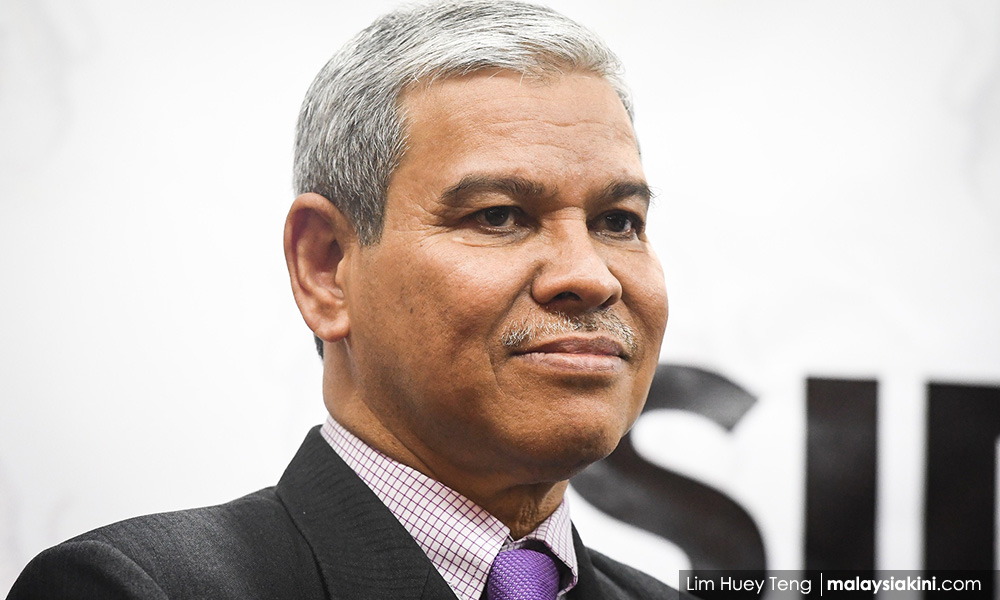
Badri (photo) repeated “the money is there” three times.
Following this, Ipoh Timur MP Wong Kah Woh and Puncak Borneo MP Willie Mongin asked Badri to show them the money, but he said there was no simple answer to this.
Essentially, Badri's explanation was that future revenue would periodically replenish the GST trust fund to facilitate the refunds.
Note that GST collection stopped on June 1, 2018.
Najib told the PAC repeatedly on Oct 18, 2018 that the RM19.4 billion was not missing and was “in the system.”
He said the GST refund delays were caused by cash flow problems and would have been remedied eventually had the tax not been abolished.
Najib also passed the buck to the accountant-general for advising him to keep GST revenue in the consolidated revenue account.
Lim, called to testify before the PAC on Nov 18, 2018, justified his famous “robbery” remark on grounds that the government was the custodian of the GST refunds that were to be kept in the GST trust fund, and that this was not done.
He also said, citing the attorney-general, that the custodian of the GST refunds had a legal obligation to facilitate the refunds within 14 working days.
"We are talking about a trust account. That is where I think the severity of the offence lies," he said.
Did the PAC suggest criminality?
The three-page summary of the PAC report is silent on criminal liability, while Attorney-General Tommy Thomas's letter to the PAC left the matter open-ended.
“The question, whether criminal liability attaches to the breach of trust is not addressed here, but must be further considered. Apparently, they are the subject matter of criminal investigations by the police,” he said.
Trusts laws, according to Thomas, requires the custodian of the GST refunds to act in the best interests of taxpayers, by ensuring a sufficient amount of monies are held in a trust account in order for refunds to be paid out within 14 or 28 days, under Regulation 67 of the GST Regulations 2014.
“By failing to do so, and by allowing the shortfall of RM19.2 billion to occur, the government has unquestionably breached its duties as a trustee.
"This means that if any GST taxpayer who has been denied refunds sues the government, the latter has no defence, and the taxpayer will succeed in the litigation,” he said.
This instalment of KiniGuide is compiled by ANDREW ONG, GERALDINE TONG, and ANNABELLE LEE.
RM12.50 / month
- Unlimited access to award-winning journalism
- Comment and share your opinions on all our articles
- Gift interesting stories to your friends
- Tax deductable
